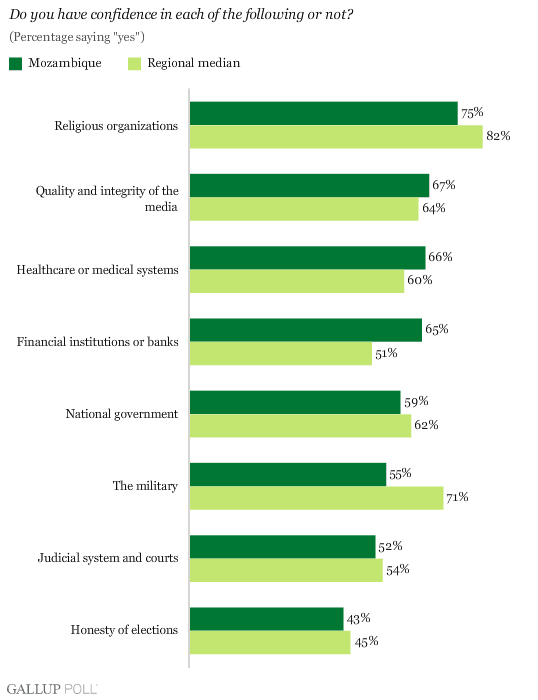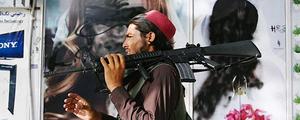WASHINGTON, D.C. -- Earlier this week, the Mo Ibrahim Foundation awarded its inaugural Prize for Achievement in African Leadership to Joaquim Chissano, former president of Mozambique. The prize, which is worth $5 million and an additional $200,000 per year for life, was established to inspire African leaders to pursue a path of good governance, stable democracy, and sustainable development for their countries.
Chissano was instrumental in negotiating a peace agreement with the Mozambican National Resistance (RENAMO) forces, effectively ending 16 years of civil war. After winning the country’s first multiparty elections in 1994, he led his country through the crucial transition years after the civil war. During Chissano’s tenure, Mozambique implemented political and economic reforms that paved the way for democracy and growth.
Results from a Gallup Poll conducted in June of this year show that Mozambicans have favorable opinions of their national institutions, most of which elicit the confidence of more than 50% of the population. Mozambicans appear to be somewhat less trusting in their electoral system, in which 43% of respondents express confidence.
However, a regional comparison reveals that Mozambicans’ confidence levels in national government, the judiciary, electoral systems, and the media are on par with those expressed in the Southern Africa region. Mozambicans appear slightly more trusting in the healthcare system and far more confident in financial institutions than the regional median. But Mozambicans are also slightly less likely to have confidence in religious organizations and far less likely to have confidence in their military than the medians for residents in the region.

Survey Methods
Results are based on face-to-face interviews with 1,000 adults in Mozambique in June 2007, aged 15 and older. Poll data on Malawi, South Africa, Zambia, and Zimbabwe were collected in 2007. For Angola, Botswana, and Madagascar, the data were collected in 2006. For results based on the total sample of national adults, one can say with 95% confidence that the maximum margin of sampling error is ±5 percentage points. In addition to sampling error, question wording and practical difficulties in conducting surveys can introduce error or bias into the findings of public opinion polls.
